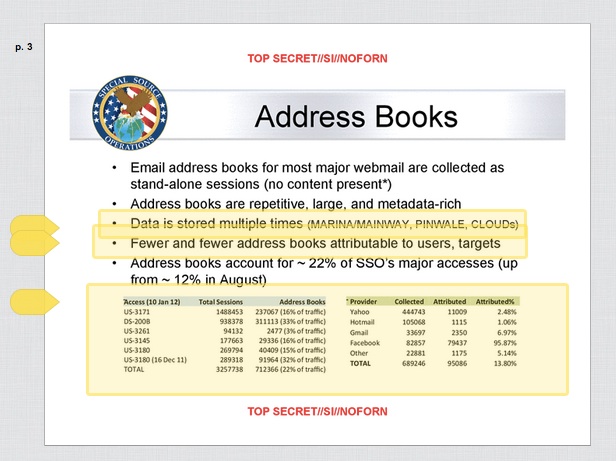Whenever the mainstream media starts to portray someone as a “loser”, then you know you’re on to something. I felt that from the beginning about Edward Snowden, especially in the early days as the cod-psychoanalysis and general character-assassination burgeoned in the right-wing media. My impression of Snowden is exactly the opposite of the picture of him that emerged from these travesties. He looked to me from the outset like a very smart, thoughtful and sophisticated thinker. And the more we see of his revelations, the stronger this impression becomes. Here is someone who used his privileged access carefully, not just downloading at will but picking out aspects of the NSA’s (and, to some extent, GCHQ’s) behaviour that illuminated the things that are alarming and questionable about their activities: the sheer scale; the ambition; the arrogance; the confidence that they are, effectively, beyond the control of the politicians who nominally ‘oversee’ them — and the implications of all this for democracy. This maturity and confidence were on display last week when he appeared in a video after being awarded the Sam Adams prize for integrity in intelligence. “We don’t have an oversight problem”, he says at one point. “We have an undersight problem”. Elegantly put.
Julian Assange is a different kettle of fish. His personal idiosyncrasies have had the effect of turning him into an easily-disregarded nutter. Whereas Snowden seems to have none of Assange’s swaggering egotism, the WikiLeaks founder possesses an unerring knack for alienating those who wish to support him, or even those who wish him well. “Assange is simply too weird, in his person and his politics”, writes Benjamin Wallace-Wells in a thoughtful piece,
to have become part of any mainstream coalition—but they have collapsed so completely that there is little left of Assange’s public image right now beyond the crude cartoon. Vain and self-mythologizing, he has been accused of sexual assault by two of his supporters; a prophet of the mounting powers of the surveillance state, he now reportedly lives in a fifteen-by-thirteen-foot room in London’s Ecuadoran Embassy, sleeping in a women’s bathroom, monitored by intelligence agencies at all times; still trusting of the volunteers around him, he gave one such man access to secret American diplomatic cables about Belarus, only to find that information passed along to the Belarusian dictator. It is as if Assange has been consumed by his own weaknesses and obsessions. Calling around, I’d heard that the last prominent London intellectual who still supported him was the writer Tariq Ali, but when I finally reached him, via Skype, on an island in the Adriatic, it turned out that Ali, too, had grown exasperated with Assange.
And yet he remains an important person in our world, because of what he has achieved. The nice thing about Wallace-Wells’s article is that it dives through all the obfuscatory controversy to get at the significance of the man. “It is strange”, writes Wallace-Wells, “how completely these dramas have obscured the power of his insights and how fully we now seem to be living in Julian Assange’s world”. He goes on:
The insight that Assange husbanded and Snowden’s evidence confirmed is that the sheer seduction of this trove—the possibility of secretly knowing everything about other people—would lead governments and companies to abandon their own laws and ethics. This is the paranoid worldview of a hacker, assembled from a lifetime of chasing information. But Assange proved that it was accurate, and the consequence of his discovery has been a strange political moment, when to see the world through the lens of conspiracies has not only made you paranoid. It’s also made you aware.
Assange’s detractors often call him a conspiracy theorist and mean it as a simple slur. But in the most literal sense, Assange is exactly that: a theorist of conspiracies. He gave his major pre-WikiLeaks manifesto the title Conspiracy As Governance, and in it he argued that authoritarian institutions relied on the people working within them conspiring to protect potentially damaging information. In large institutions like militaries or banks, to keep these kinds of secrets requires an enormous number of collaborators. If you could find a way to guarantee anonymity, then even the most peripheral people within these institutions could leak its secrets and break the conspiracy. WikiLeaks was built to receive these leaks. Bradley Manning, in other words, did not simply find WikiLeaks. WikiLeaks was designed for Bradley Manning.
Wallace-Wells goes on (as I did) to pick up on Peter Ludlow’s essay about the disjunction between personal morality and the ethical dilemmas that being a conscientious member of an organisation can pose for its individual members. “Conspiracy doesn’t have to mean old white dudes at a mahogany table,” Ludlow wrote. “It can be an emergent property of a network of good individuals, where all of a sudden you’ve got a harm-causing macro entity.”
The response of the security and governmental establishment to both Assange and Snowden has been to try and character-assassinate the messenger. With a target like Assange, they didn’t really have their work cut out. But Snowden is different. Which is why it behoves the rest of us to focus not on the messenger, but on the message.
LATER: Jon Crowcroft points out that there is an important difference between Snowden and Assange, namely that Snowden is a whistleblower whereas Assange is an enabler/publisher of the outputs of whistleblowers. The real hero of the War Logs and Cablegate story is, of course, Bradley (now Chelsea) Manning.
for its publication in the US and came on this quotation from Nineteen Eighty-Four
which I’d used (and forgotten).


